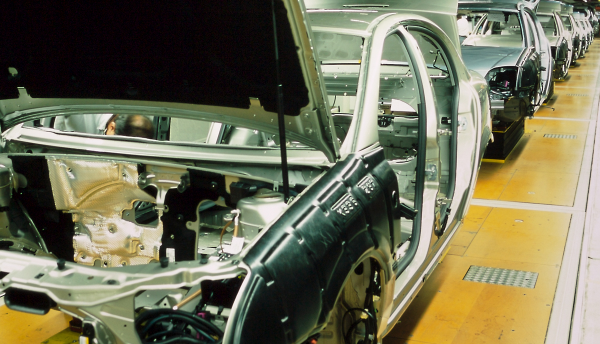
Mando Corporation, South Korea’s third largest automotive supplier behind Hyundai Mobis and Hyundai Wia, is to split into two separate entities. One company, Halla Holdings Corp, will focus on investments, while the other, Mando Corp, will continue to make auto parts, according to a regulatory filing last week. Halla Holdings will take charge of all future investments of its affiliate.
Mando has said that Halla Holdings will undergo a listing change to enable it to be traded starting in October this year. It will undergo a re-evaluation by stock market authorities before it is relisted. The move will ease the complicated cross-shareholding arrangement which has adversely affected corporate governance. Mando’s corporate team has come under scrutiny over a number of moves which have frustrated shareholders. Mando is operated by a family-owned industrial group, commonly known in South Korea as chaebol.
Chaebol groups are facing increasing scrutiny in South Korea, as concerns over transparency of boardroom decisions and meagre dividends for shareholders hold back investors. New legislation has recently revealed to the public the pay packages of some of their leading executives, which highlighted the grip they hold at the top of many South Korean multinationals. The chaebol are known for complicated cross shareholding which, according to IMF, contributed to the country’s 1997-99 financial crises.
The tensions between board and shareholders began in April of last year, as Mando forged ahead with a plan to invest in Halla Engineering & Construction Corporation, an affiliate of its parent Halla Group. Mando bought KRW378.5bn (USD338.6m) worth of new shares in its wholly-owned affiliate Meister Inc., which in turn invested KRW338.5bn (USD302.9m) in Halla Engineering. Halla Engineering is the biggest shareholdes in Mando with a 20% stake.
This investment was made, despite an injunction filed by Truston Asset Management, the second largest shareholder of the company, to prevent the deal. The company’s investment decision is in contrast with South Korean President Park Geun Hye’s pledge to limit cross shareholdings to prevent family-controlled industrial empire. The amount was 76% more than Mando’s cash and near cash at the end of 31 December 2012. Investors cited concerns over the potential to stretch liquidity at Mando, affecting its performance, and that this may have been the first in a number of actions to rescue Halla Engineering.
The plan saw Midas International Asset Management sell its stake in Mando Corporation, believed to be over 20,000 shares at the time.
Tensions were again exposed in March of this year, as the South Korea-based National Pension Service (NPS) failed in an attempt to veto extension of Shin Sa Hyeon's term as Mando Corporation's CEO. The Korean pension fund is the second largest investor in the Halla Group-owned Mando with a 13.4% stake. NPS was trying to block Hyeon’s reappointment, claiming he damaged shareholders' interests by approving the bailout of an unprofitable affiliate last year.
Though NPS failed to veto the CEO's reappointment, the move hints that family-run industrial empires will increasingly face scrutiny over their governance going ahead. South Korean President Park Geun Hye is also favouring limiting cross-shareholding in chaebol which control a large part of the business in South Korea. The split in Mando’s operations may only be the start for South Korean companies.








